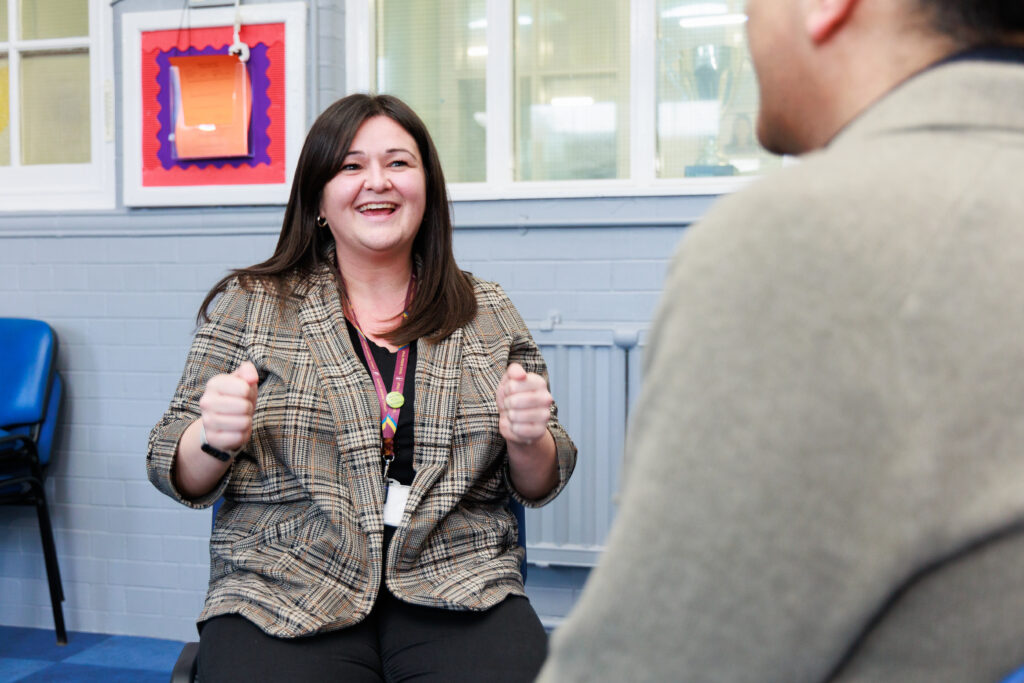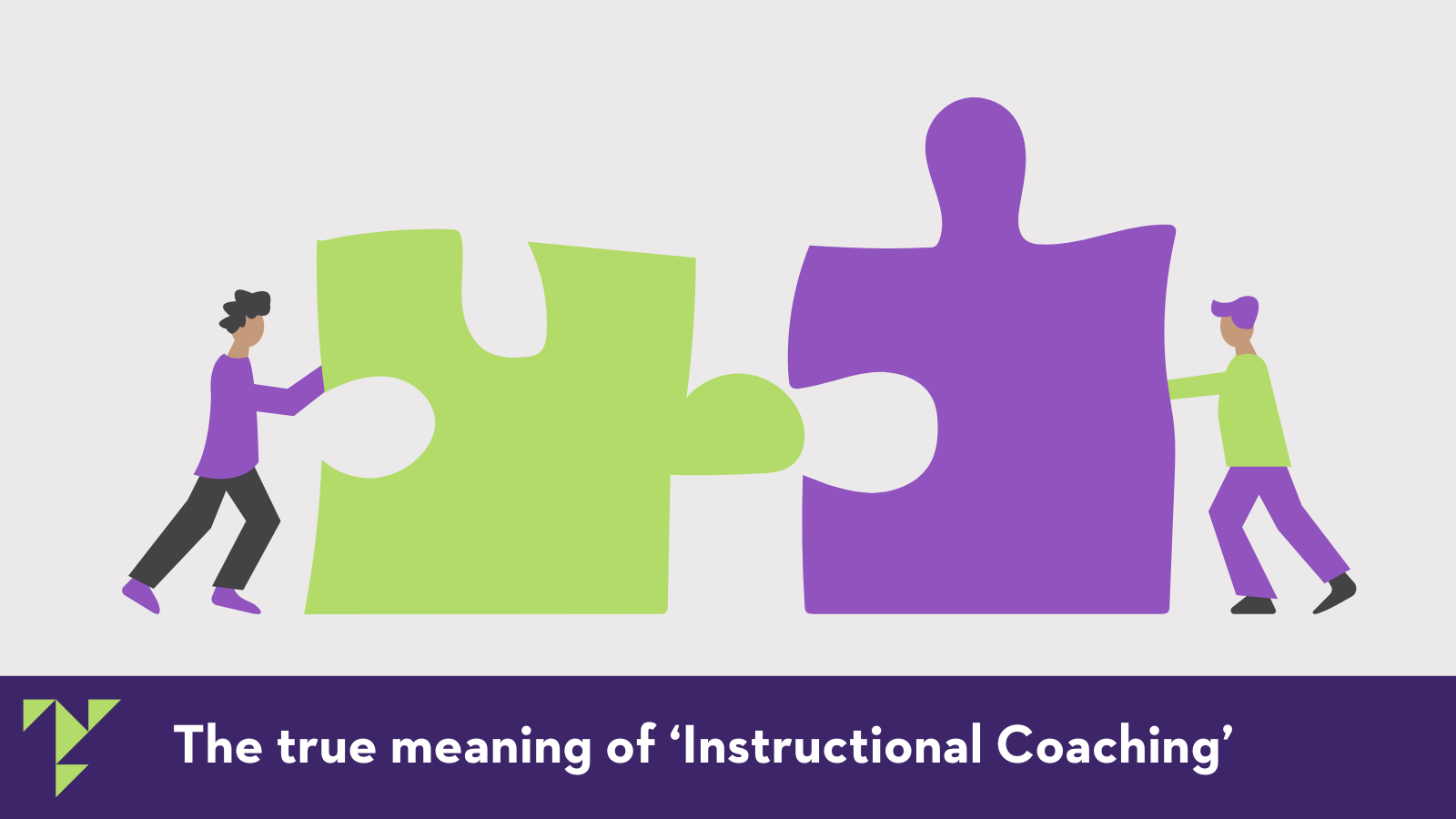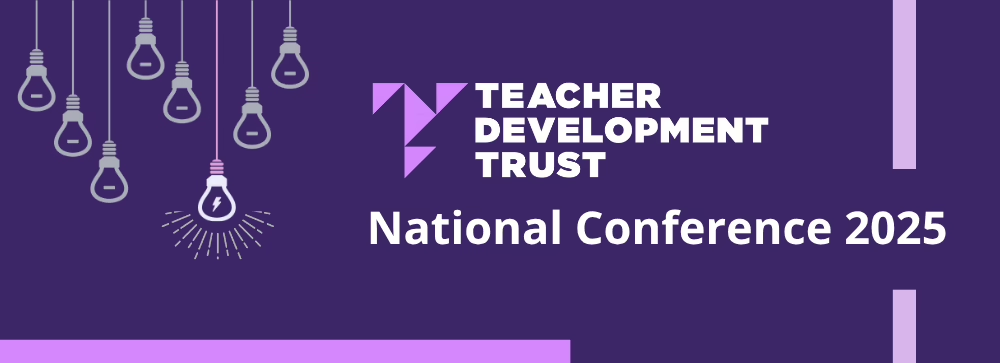By Bethan Hindley, Director of Design and Delivery
“What’s in a name? That which we call a rose
By any other word would smell as sweet.”
Romeo and Juliet, Act II, Scene I
Coaching in education has long been part of the fabric of professional development, underpinned by shifting philosophies and structures. In recent years, the growing trend has been for schools to engage in and embed programmes of instructional coaching (including in the Early Career Framework).
This has been a positive move as the evidence for instructional coaching is strong, and TDT has been offering our own instructional coaching programme – called pedagogical coaching – since 2019.
One of the ongoing risks with any educational programme moving to scale is that it starts to move away from the original evidence, as the drive to get ‘cut through’ with busy school leaders means that marketing and technology dominate the original evidence base. In the rush to capitalise on promising evidence, trends subtly warp into fads and the impact everybody was hoping for never materialises.
Back to the evidence
The term ‘instructional coaching’ was first used in education writing by Canadian academic Jim Knight in a 2004 article, which built on work over the preceding decade exploring how best to help teachers move learning from professional development into classroom practice. Over time, Jim Knight has refined his approaches and gained many converts to his cause – including here at TDT.
It is worth pulling out a quotation from that original 2004 article to demonstrate the starting principles of instructional coaching:
“Instructional coaches learn to adopt a partnership approach with teachers. Partnership, at its core, is a deep belief that we are no more important than those with whom we work, and we should do everything we can to respect that equality. This approach is built around the core principles of choice, dialogue, and knowledge in action.”

A subsequent evaluation of coaching programmes in the United States and other developed countries examined 60 studies on the impact of coaching on teaching practice and pupil outcomes (Kraft, Blazar and Hogan, 2018). The authors of this meta-analysis recognised the challenges with the varied definitions of coaching. In this study, the coaching process was defined as:
“ …instructional experts work[ing] with teachers to discuss classroom practice in a way that is:
- Individualised – coaching sessions are one-on-one;
- Intensive – coaches and teachers interact at least every couple of weeks;
- Sustained – teachers receive coaching over an extended period of time;
- Context specific – teachers are coached on their practices within the context of their own classroom; and
- Focused – coaches work with teachers to engage in deliberate practice of specific skills.”
The findings of the study showed a clear, positive impact of coaching on teacher practice and pupil outcomes. But there is a caveat:
“Although these findings affirm the potential of coaching as a development tool, further analyses illustrate the challenges of taking coaching programs to scale while maintaining effectiveness. Average effects from effectiveness trials of larger programs are only a fraction of the effects found in efficacy trials of smaller programs”
Why is it so hard to move to scale? Reasons cited include that to be effective, programmes need to get teacher buy-in and to build relational trust between coach and teacher in a culture of psychological safety and continuous growth. Teacher coaching programmes that were imposed on a school tended to be far less effective than those that came from a local, collective decision made by teachers and school leaders.
In other words, programmes that were too directive lost something important from the evidence – the need to base any coaching on open and trusted dialogue, and to ensure that the coach is working in partnership with the teacher and the school, responding to the context-specific needs in front of them rather than any other agenda.
What should you look for in instructional coaching?
As part of the development of our online module on coaching, we spoke to Jim Knight and explored his view of instructional coaching in the UK:
When we developed our coaching programme in 2019, we wanted to start with the evidence and then consider how to apply it in practice. We have always been determined to take a dialogic coaching approach, to work with teachers and school leaders and respond to their needs, attending to school culture as well as the principles of instructional coaching itself.
A coach will use a mix of skills to respond to needs, including giving advice, offering suggestions, asking questions, and holding a more open reflective space. Crucially, a coach works in a responsive way with the individual they’re in partnership with, employing a range of skills to unlock insight, nurture their agency, and support their growth.
Above all, we want to ensure that we do not fall into the trap of creating a coaching programme that is simply more experienced teachers telling less experienced teachers what to do, without nuance or conversation. We settled on the term ‘pedagogical coaching’ to try and draw a distinction from more directive programmes, although perhaps reclaiming the term instructional coaching might be more impactful.
Questions to Consider
So, if you’re a school leader considering investing in a coaching programme, it’s essential to look beyond surface level terminology and dig into the underlying philosophy and approach to create the culture and conditions for it to embed, thrive and have impact on pupil outcomes. Questions you might ask include:
- How will coaching be embedded as part of our overall professional learning environment and culture of development?
- What approach to coaching is being used?
- How are coaches trained to build relational trust and share their expertise in a way that enables meaningful professional learning and empowers colleagues?
- How do staff feel about coaching, and have actions been taken to support their buy-in? Have I engaged with my staff to get their buy-in? Are we ready?

Our coaching programme for schools is centred on collaboration, contextual understanding, and sustained dialogue that, when implemented, actively contribute to a culture of professional trust, shared responsibility, and continuous improvement. Find out more here.
You might also enjoy our Online Learning Module on Creating an Supportive Coaching Culture.



